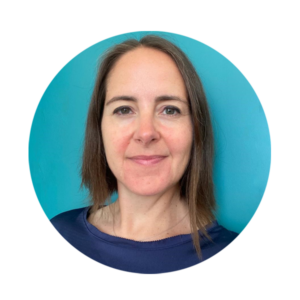In this Papers Podcast, Dr. Fiona Challacombe discusses her co-authored CAMH journal paper ‘Preventing anxiety in the children of anxious parents – feasibility of a brief, online, group intervention for parents of one- to three-year-olds’ (https://doi.org/10.1111/camh.12596).
There is an overview of the paper, methodology, key findings, and implications for practice.
Discussion points include:
- What is known about anxiety, how it aggregates in families, and how it is transmitted between generations.
- Why it is important to tackle childhood anxiety and the typical trajectory for children who are anxious and do not receive help.
- Insight into the adapted online group intervention on parenting skills for anxious parents.
- Implications of the paper’s findings for child and adolescent mental health professionals and policymakers.
- Tips for anxious parents.
In this series, we speak to authors of papers published in one of ACAMH’s three journals. These are The Journal of Child Psychology and Psychiatry (JCPP); The Child and Adolescent Mental Health (CAMH) journal; and JCPP Advances.
Subscribe to ACAMH mental health podcasts on your preferred streaming platform. Just search for ACAMH on; SoundCloud, Spotify, CastBox, Deezer, Google Podcasts, Podcastaddict, JioSaavn, Listen notes, Radio Public, and Radio.com (not available in the EU). Plus we are on Apple Podcasts visit the link or click on the icon, or scan the QR code.

Fiona is a clinical psychologist and researcher in the field of perinatal mental health. She is currently a clinical lecturer in Perinatal Psychology at King’s College London and has developed and led a specialist NHS clinical service for parents with anxiety disorders from pregnancy to the end of the third postnatal year. She is patron of the service user led charity Maternal OCD which raises awareness of the disorder amongst service users and healthcare professionals. Fiona’s research interests include adaptation of treatments in the perinatal context, and how to support parental mental health in the context of high-risk pregnancies and complex outcomes. She is also particularly interested in equity of access and outcomes in perinatal mental health. She is author of Break Free from Maternal Anxiety, and self-help and practitioner books on OCD. She regularly provides training and clinical supervision on perinatal mental health.
Transcript
[00:00:01.240] Jo Carlowe: Hello, welcome to the Papers Podcast series for the Association for Child and Adolescent Mental Health, or ACAMH for short. I’m Jo Carlowe, a Freelance Journalist with a specialism in psychology. In this series, we speak to authors of papers published in one of ACAMH’s three journals. These are the Journal of Child Psychology and Psychiatry, commonly known as JCPP, the Child and Adolescent Mental Health, known as CAMH, and JCPP Advances.
Today, I’m interviewing Clinical Psychologist and Researcher Dr. Fiona Challacombe, Clinical Lecturer at the Section of Women’s Mental Health at the Institute of Psychiatry, Psychology and Neuroscience, King’s College London. Fiona is a co-author of the paper, “Preventing Anxiety in the Children of Anxious Parents – Feasibility of a Brief Online Group Intervention for Parents of One to Three-year-olds,” recently published in CAMH. This paper will be the focus of today’s podcast.
If you’re a fan of our Papers Podcast series, please subscribe on your preferred streaming platform, let us know how we did, with a rating or review, and do share with friends and colleagues.
Fiona, welcome, thank you for joining me. Can you start with an introduction about who you are and what you do?
[00:01:17.000] Dr. Fiona Challacombe: My name is Fiona Challacombe. I’m a Clinical Lecturer at King’s College London. I’m a Clinician working with parents of any gender, really from pregnancy until the age of three, and parents with anxiety problems in general. My research also focuses on this area, particularly looking at interventions and development of interventions for parents during that time.
[00:01:39.530] Jo Carlowe: We’re going to look at your paper today, but before we go into the detail, can you tell us what is known about anxiety and how it aggregates in families and how it gets transmitted between the generations?
[00:01:52.610] Dr. Fiona Challacombe: So, anxiety problems are very common in both adults and children, but we know that about half of anxiety problems actually begin during childhood. So, they’re really evident very early really, in the earliest, kind of, form of problems. There are relationships really between child and parental anxiety and lots of potential mechanisms. So, although it’s perfectly possible to be an anxious parent and not have an anxious child and vice versa, there are raised risks. You’re about, kind of, one to two times more likely to be anxious if you do have an anxious parent. And of course some of that will be to do with genetic factors, but a lot of it will be to do with environmental factors, in particular parenting. And there’s many aspects to parenting, aspects of, kind of, the emotional environment of home, aspects to do with, kind of, risk taking, and messages about anxiety itself that can be transmitted. So, there are lots of, kind of, modifiable factors, which is really exciting for the field of prevention.
[00:02:54.069] Jo Carlowe: And why is it so important to tackle childhood anxiety? So, what is the typical trajectory for children who are anxious who do not receive help?
[00:03:03.790] Dr. Fiona Challacombe: So, these problems really I said do tend to persist into adulthood. So, I said, about half of adults with anxiety problems had those difficulties starting in childhood. They can therefore affect people throughout their whole life. There are impacts on every aspect of life and functioning. So, really from, kind of, school functioning to then, kind of, economic functioning relationships and so on. So, they really can have a huge and longstanding impact if untreated throughout life.
[00:03:37.489] Jo Carlowe: Let’s turn now to the paper. So, this is “Preventing Anxiety in the Children of Anxious Parents – Feasibility of a Brief Online Group Intervention for Parents for One to Three-year-olds,” recently published in CAMH. Fiona, can you give us a brief overview to set the scene?
[00:03:52.599] Dr. Fiona Challacombe: This paper describes an adaptation of an intervention that was designed by Professor Cartwright-Hatton in Sussex to prevent anxiety in the children of parents who have an anxiety difficulty themselves. Prof Cartwright-Hatton has already tested this out and found this to be effective in reducing levels of anxiety in school-aged children. But with our, sort of, clinical work with parents in the perinatal period and, kind of, just beyond that, we know that even at that stage, parents who are experiencing anxiety themselves are very concerned about the transmission of anxiety to their children and their own parenting, and feel that actually, even at this – at the, kind of, toddler stage, that this kind of intervention would be useful. So, we had input from people with lived experience throughout the design and conduct of the study. And we – based on our system – our systematic review, kind of, looking at modifiable factors earlier on, preschool, that actually, we thought we could adapt this programme for parents at this earlier stage.
And so, our study here was testing out our adaptation with a group of parents with anxiety problems. So, the parents could be mums or dads. It’s a short intervention. So, it’s only two sessions of an hour each. And we conducted it online, which was very helpful for parents with small children, and I would say it’s probably one of the easiest studies we’ve ever had to recruit to. We were oversubscribed, a rare thing. But I think really showed off the bat that this was a popular subject with parents who had anxiety difficulties.
Our aim in this study was really just to see – get some initial feedback and see if it was feasible to run the study at scale, if parents would participate, really what they thought of the content, whether they found it useful. We gave them measures for their own mental health. We gave – we asked them to complete measures on their parenting and about their children. So, it’s to get an initial sense of, was this useful? People were keen about the idea of it. We had parents with a variety of anxiety presentations, different disorders. They could self-define. And really in terms of, kind of, the content, everybody completed both sessions and completed our measures of follow-up again. So, we had really good retention to the study.
And in terms of the intervention, it’s not a treatment for anxiety. It was very much a focus. It’s a psychoeducation focused on parenting skills. So, that’s really important to say. And it’s a group intervention that had a facilitator. And we had the first author of our paper, an excellent facilitator who’d really thought carefully about how to deliver this in this format. So, we had a printed manual that she sent out to everybody and really wanted to, sort of, maximise interaction. As we all know, online and having screens can sometimes get in the way. So, she was very thoughtful about those aspects, which again, I think parents really liked.
So, in terms of what we found, parents gave very positive feedback about the content. They found most elements very helpful. We asked them whether it had helped with their parenting confidence. Generally, people thought it had helped with that. We asked them about different, kind of, dimensions of parenting. Like, “How confident do you feel dealing with your children’s emotions? How confident do you feel in terms of, kind of, having fun and playing with children and so on?” And generally, people reported improvements in those important, sort of, concepts. The sort of things that we know anxiety problems can interfere with, which was really positive.
We also asked parents about their own mental health. Interestingly, given that this wasn’t a specific target of their intervention, actually parents reported reduced rates of anxiety and improved mood themselves, which I found particularly interesting. So, parents of small children, you know, parenting is a big part of your life in terms of the time and the demand. So, something that was focused on helping them with confidence actually then had seemed to have an impact on their own wellbeing, which was fantastic to see.
[00:08:11.900] Jo Carlowe: But were they more confident in their parenting or more confident in hoping that they – this transmission of anxiety would be less likely?
[00:08:21.069] Dr. Fiona Challacombe: That’s a really good question. So, we only asked them about the former. So, more confidence in their parenting. We would hope, given the nature of the intervention, a closely allied question would mean more confident that actually, they felt they knew, kind of, what to do and how to manage, you know, where – the situations where their own anxiety might, kind of, potentially get in the way, which was very much what the group is about. So, we were only able to do a short follow-up in this. So, there was no change in the child measures. You need a longer follow-up; you need very big numbers to show that things don’t happen. But certainly the initial, kind of, signals are there that parents found it useful and that this could be a way, as it had with the older children, but even more key stage, to help parents with parenting and not letting their anxiety interfere.
[00:09:17.720] Jo Carlowe: But what are the implications of your findings for CAMH professionals?
[00:09:21.980] Dr. Fiona Challacombe: The implications would be that there are some actually quite achievable things that can be done at a very early stage. So, as I said, we would like to run a bigger trial to, kind of, demonstrate the impacts, but what we do know is that parents are really – want to have this information and they want to use it. So, you know, in future research it would be great to investigate how they use it and how long lasting it is. But certainly based on this initial research, a very short accessible group that could be run by, you know, Graduate Psychologists could be an intervention that actually could support parents who’ve experienced anxiety themselves in ameliorating that impact on children. So, I think it’s quite exciting.
Essentially, quite easy to incorporate into child services or even into adult mental health services. Parents actually, I think liked was that the focus was not on their own mental health and that it was about skills training. And of course getting people into a room and so on, it always presents challenges, but it was definitely achievable with this online. It was just an hour. So, I think, yeah, these are the main messages that this really could be done without too much additional resource.
[00:10:43.250] Jo Carlowe: Well, but on the topic of resources, what are the implications for policymakers?
[00:10:47.940] Dr. Fiona Challacombe: Again, this is a time to really invest in supporting parents that we know a lot about potential factors that can influ – negatively influence child development. And we do have interventions to support parents through that stage. So, I think, again, greater accessibility. It would need some resource behind it, but it wouldn’t need a complete remodelling of things. These interventions could be slotted into existing services with just a small investment. And perhaps if that’s preventing problems down the line, that would be saving money. So, I think again, it’s a worthy area to be thinking about. And the popularity of it, I think, again, is something that shows this is something that is coming from parents themselves. It’s a great time to intervene in early parenthood as parents are, kind of, making that transition, finding their feet with skills. It’s a great time to be offering them that support.
[00:11:48.680] Jo Carlowe: And on the topic of parents, what tips do you have, if any, for anxious parents?
[00:11:53.889] Dr. Fiona Challacombe: I would emphasise the fact anxiety is something that’s very common. That people experience a lot and that you can still be an absolutely brilliant parent if you have an anxiety problem. Some things might be difficult for you. As in for any parent, there’ll be things which push our buttons. But if you have an anxiety problem, there might be things that interweave with your own anxiety, but there are certainly things that are worth knowing about that you can offset those things. It’s always a good time to work on your own anxiety and get help for yourself as well. I would emphasise that too. But yeah, I think all of those other things are important to know.
[00:12:31.300] Jo Carlowe: Is there anything else that you would like to highlight in the paper?
[00:12:34.370] Dr. Fiona Challacombe: Yes, just to thank all the participants really for their support. And we – I can’t do anything without people taking part in filling in our questionnaires, but we were really happy to see, with this study, I guess, the level of support.
[00:12:48.960] Jo Carlowe: Are you planning any follow-up research or is there anything else in the pipeline that you would like to share with us?
[00:12:56.329] Dr. Fiona Challacombe: So, given that this has gone well and we feel it’s promising, we are working on scaling this up. We’d love to see how this works in real life and following up. As I say, real life, within a bigger sample and following the kids up and really interacting more with parents with anxiety to see what could be added to this, if they feel it’s enough, or how it could work to help them through a longer period.
[00:13:19.130] Jo Carlowe: And finally, what is your take home message for our listeners?
[00:13:23.570] Dr. Fiona Challacombe: Although anxiety problems are serious and have an impact, there’s lots that can be done. And the study shows that this is a popular idea with people who have anxiety problems themselves.
[00:13:35.760] Jo Carlowe: Brilliant. Fiona, thank you ever so much. For more details on Dr. Fiona Challacombe, please visit the ACAMH website, www.acamh.org, and Twitter @acamh. ACAMH is spelt A-C-A-M-H, and don’t forget to follow us on your preferred streaming platform, let us know if you enjoyed the podcast, with a rating or review, and do share with friends and colleagues.




